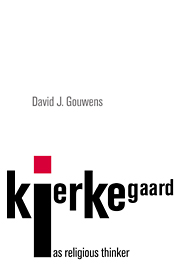Book contents
- Frontmatter
- Contents
- Acknowledgements
- List of abbreviations
- Introduction
- 1 Diseases of reflection
- 2 Anthropological reflection
- 3 Becoming religious: upbuilding before God
- 4 Becoming Christian I: responding to Christ in faith
- 5 Becoming Christian II: suffering and following Christ in hope
- 6 Becoming Christian III: love and imitating Christ in works
- 7 Witness in faith, hope, and love
- Conclusion
- Bibliography
- Index
Introduction
Published online by Cambridge University Press: 14 October 2009
- Frontmatter
- Contents
- Acknowledgements
- List of abbreviations
- Introduction
- 1 Diseases of reflection
- 2 Anthropological reflection
- 3 Becoming religious: upbuilding before God
- 4 Becoming Christian I: responding to Christ in faith
- 5 Becoming Christian II: suffering and following Christ in hope
- 6 Becoming Christian III: love and imitating Christ in works
- 7 Witness in faith, hope, and love
- Conclusion
- Bibliography
- Index
Summary
The writings of Søren Kierkegaard (1813–55) have undergone a fate that he himself foresaw: appropriation and interpretation by scholarship and the canons of the academy – whether theological, philosophical, historical, or literary. Hence arise the uses of Kierkegaard and the primary myths they engender: Kierkegaard as “the father of existentialism” or inspirer of Christian “neo-orthodoxy” (the early Karl Barth and Rudolf Bultmann) or, more recently, Kierkegaard as proto-deconstructionist (Mark C. Taylor, Christopher Norris). Appropriated into the “history of philosophy” or “the history of theology,” with the historian's need for typologizing (hence, comparing and contrasting him with other thinkers) and the professor's need to cover a wide range of “material,” Kierkegaard's writings ironically have often become what he himself feared – a “subsection” within the history of thought, to say nothing of grist for the mill of academic publication and the furtherance of academic careers.
The irony is compounded by two facts: first, Kierkegaard's stated intention in his literature was for what he called a “primitive” reading that engendered reflection and self-reflection in the reader, rather than merely abstract reflection unrelated to an existing person's concerns. “Scholarship more and more turns away from a primitive impression of existence … One does not love, does not have faith, does not act; but one knows what erotic love is, what faith is.” So too, as a writer he distinguishes between an “essential author” who is inwardly directed, with a distinctive life-view (Livsanskuelse), from a “premise author” who lacks inward direction. Hence, Kierkegaard muses again and again on the difficulties of writing and reading, the uncertainties of communication between author and reader.
- Type
- Chapter
- Information
- Kierkegaard as Religious Thinker , pp. 1 - 26Publisher: Cambridge University PressPrint publication year: 1996



